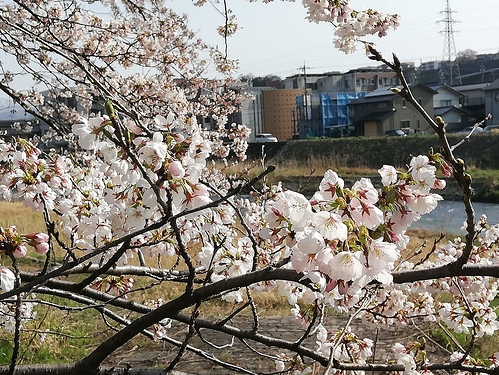先日ハイキングをしながら心臓は速くドキドキしたからちょっと心配してる
Challenge accepted.

例文:
僕の親をうれしくしたいです。
Summary
I want to make my parent happy
お茶でもいいです。
起きてください。
Summary
Tea is fine.
Wake up, please.
Hey and welcome on community forums 
ぼくの親をうれしくたいです。
Is understandable, but there are two popular (and considered standard) ways to say this:
親を喜ばせたいです。
僕の親を幸せにしたいです。
先日ハイキングをしながら心臓が速くドキドキしたからちょっと心配してる
Btw, you can also use 先日、ハイキング中に or 先日ハイキングをしているときに etc.
@matt_in_mito
Perfect. By the way, for verbs in potential form that normally use を you can also use が if you want.
あさって韓国に行ってくるぞ!楽しみにしているけど韓国語が全然話せないから英語か日本語を話せる人を探そうと思っている。
so would be also OK
起きてください。
Perfect 
お茶でもいいです。
I wasn’t sure about the situation.
In a restaurant:
お飲み物は何になさいますか?
お茶を下さい。
In a friend’s house:
何か飲む?
お茶がいいな。
Thank you very much.
教えてくれてありがとうございます。
今日の例文:
ドイツに授業料が無料と聞いた。いいね。
Summary
I heard that the tuition fee in German is free. That’s nice.
What, what? I should think of a situation where someone would actually use the sentence?! 何?!
So would say visiting a partner’s parents’ home work? I was kinda thinking that kind of situation. You’re in someone’s home, but someone you need to be a bit formal with and maybe they are like “Do you want tea? Or coffee? Or lemonade? I also have…” and then I’d go “Tea is fine.”
昨日、私は花見に行ってきました。
桜は本当にきれいでした。またいつか桜は見られるといいですね。
Summary
Yesterday I went to Hanami (cherry blossom viewing).
The cherry blossom was really beautiful. I hope someday I can see it again.
今日、外に行かなくちゃいけない。外でたくさんさくらがある。きれい。
Summary
I have to go outside today. There are a lot of cherry blossoms. (They are) beautiful.
When you are saying “there is …,” you should use に instead of で
外にたくさんの桜がある。
きれい is a な adjective so should usually be followed with だ when it is finishing a sentence. It’s not wrong to not have だ - I would probably not use だ whilst talking to my friends, but to be 100% grammatically accurate I think you should probably use it. Can someone a bit more experienced than me confirm this please?
花見 can be used as a する verb so in this situation I would put 花見をしに行きました.
花見に行ってきました makes 花見 look like a place.
DISCLAIMER I’m bad at this so might be mistaken, but I would say that you should say either を見られる or が見られる.
This is picky, but I would also use the kanji 観 in place of 見 since it has more of a meaning of ‘to view’ rather than ‘to see.’ I personally feel it looks more natural.
今週コーヒーを飲まないつもりだ… もちろん難しいけどお茶二倍飲むかもしれない。そしてお茶の中でいつものやつ砂糖半分入りたほうがいい…
Summary
I intend to not drink coffee this week… of course it’s difficult so I’ll probably drink twice as much tea. It would also be better to put the half my usual amount of sugar in my tea.
Right, there is/are means に. Thanks! (A new one for the memory bank.)
I was wondering if I should add だ or even just な (I suppose that might be wrong). But I ended up cutting both because it was more like an utterance or spontaneous addition. Not necessarily grammatically correct, but spiritually correct, if you get what I mean. But I’d also like to know if what I did was alright. ^^
My first day doing this but let’s give it a go!
今朝、奥様とコーヒーを飲みました。
Summary
This morning, I drank coffee with my wife.
Thank you very much for the kind explanation. I really appreciated it 
Definitely not な but in casual speech だ would sometimes feel a little unnatural, so to sound spontaneous I will often say きれいだなぁ which sounds a little more natural. Simply saying きれい in daily conversation is fine though. Like you said, it might not necessarily be grammatically correct, but certainly spiritually correct.
Any time! It’s good for my practice too!
Welcome!
I personally wouldn’t use 奥様 to refer to my own wife. If you’re talking about your own wife, you should probably say 妻(つま) in a polite sentence (it’s very humble and plays yourself down - remember in Japanese conversation you always consider yourself to be the lowest person  )
)
In a casual conversation I would probably say 奥さん or even 嫁(よめ)さん (literally my bride  ) but I have never heard of someone using 様 to refer to their own wife, it’s almost like boasting.
) but I have never heard of someone using 様 to refer to their own wife, it’s almost like boasting.
For this kind of thing I would recommend reading about the うち and そと culture in Japan. The sentence itself was grammatically fine though!
Today’s sentence:
大学から卒業した後で、日本に働くつもりです。
Summary
I intend to work in Japan after graduating from university.
You don’t need the から between 大学 and 卒業. I think that’s just from the English phrase “graduating from university”.
So I would say either
大学卒業した後で 、日本に働くつもりです
or
大学卒業してから 、日本に働くつもりです
But, also someone please correct me if I’m wrong… I’m also wondering if で would be better than に for the 日本に働く?

